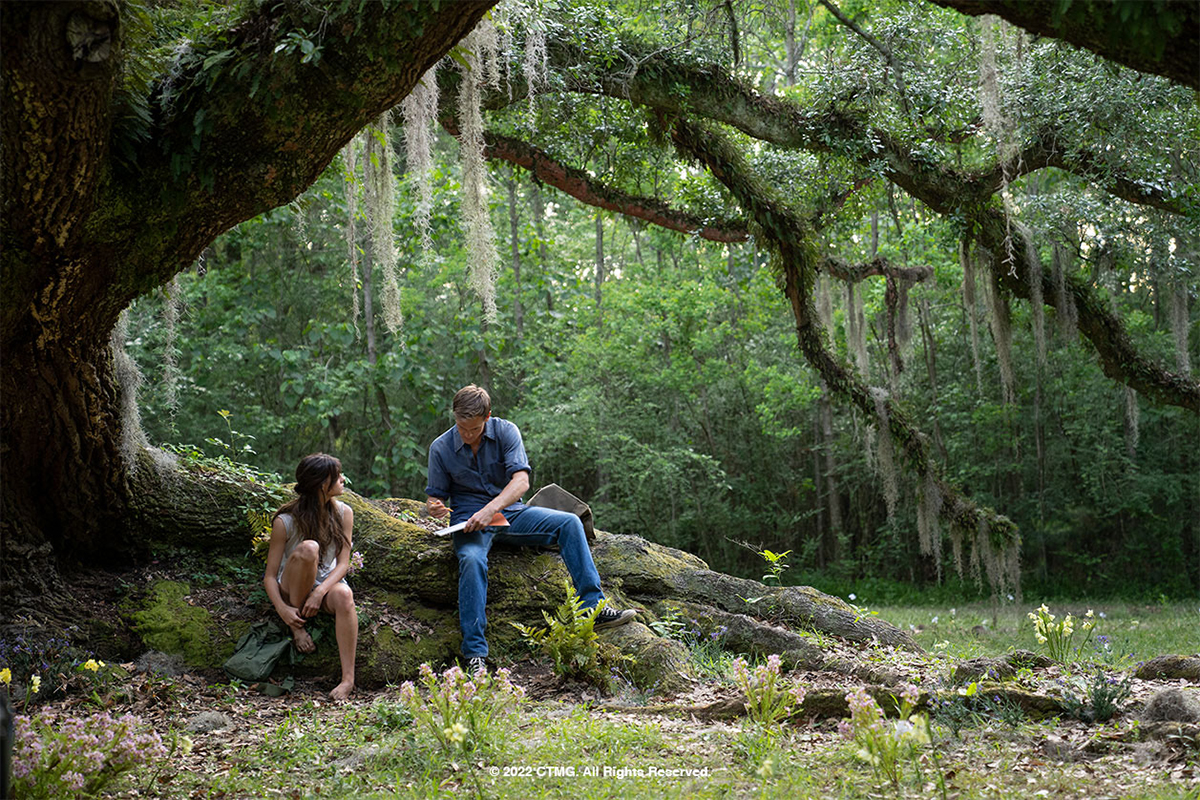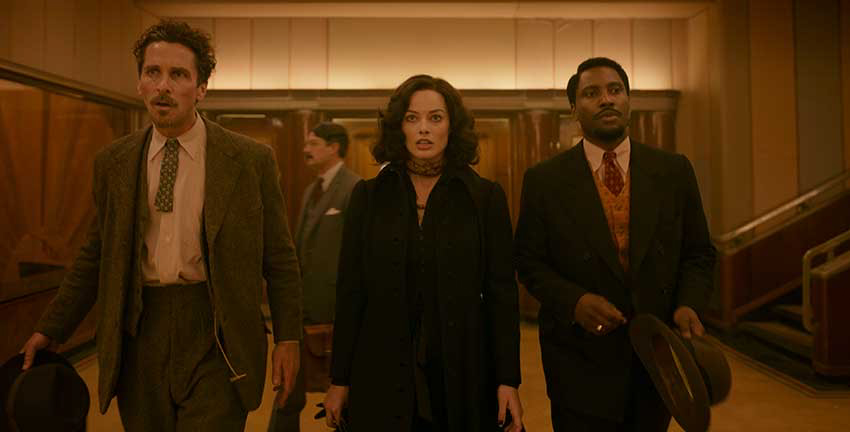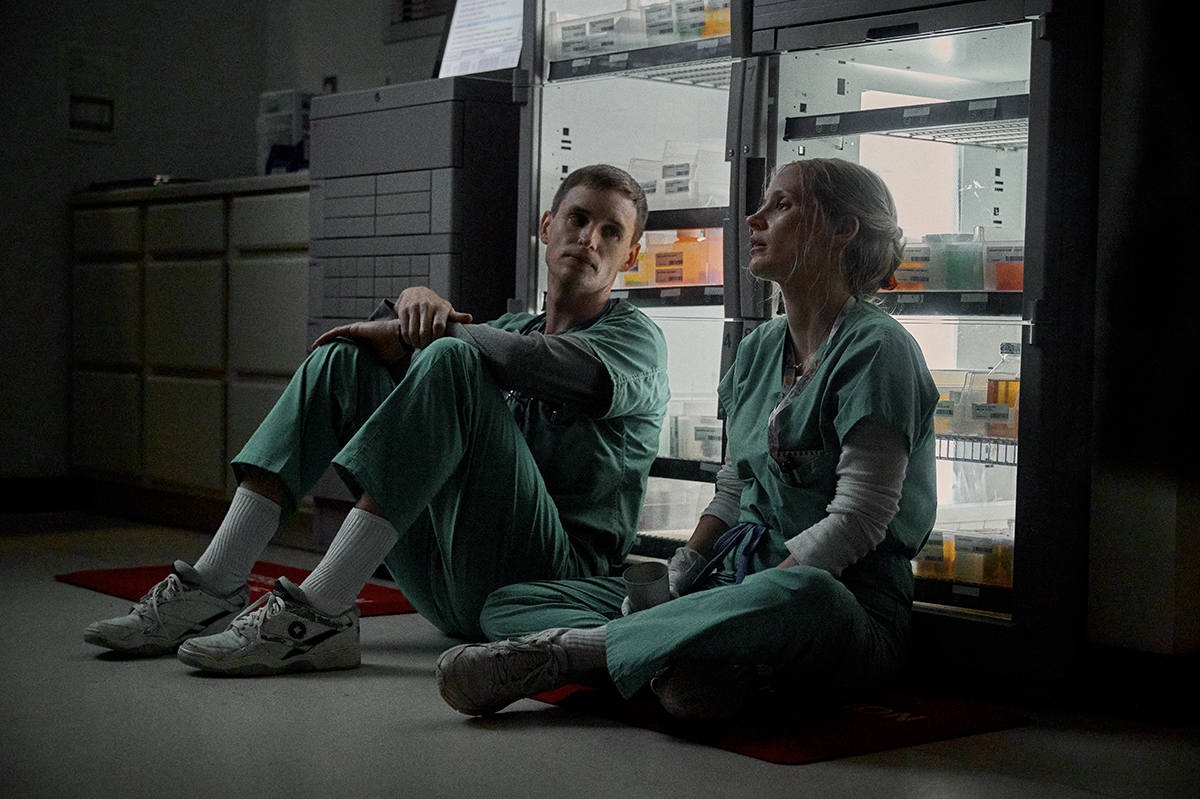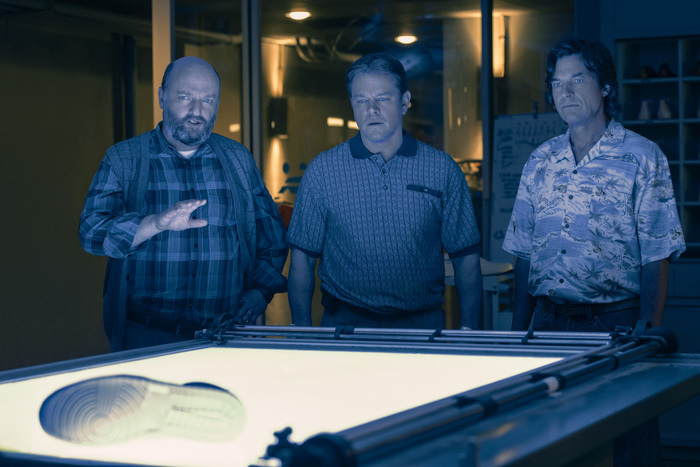Film review: Quietly haunting and eye-opening, ‘Priscilla’ challenges the Presleys’ legacy
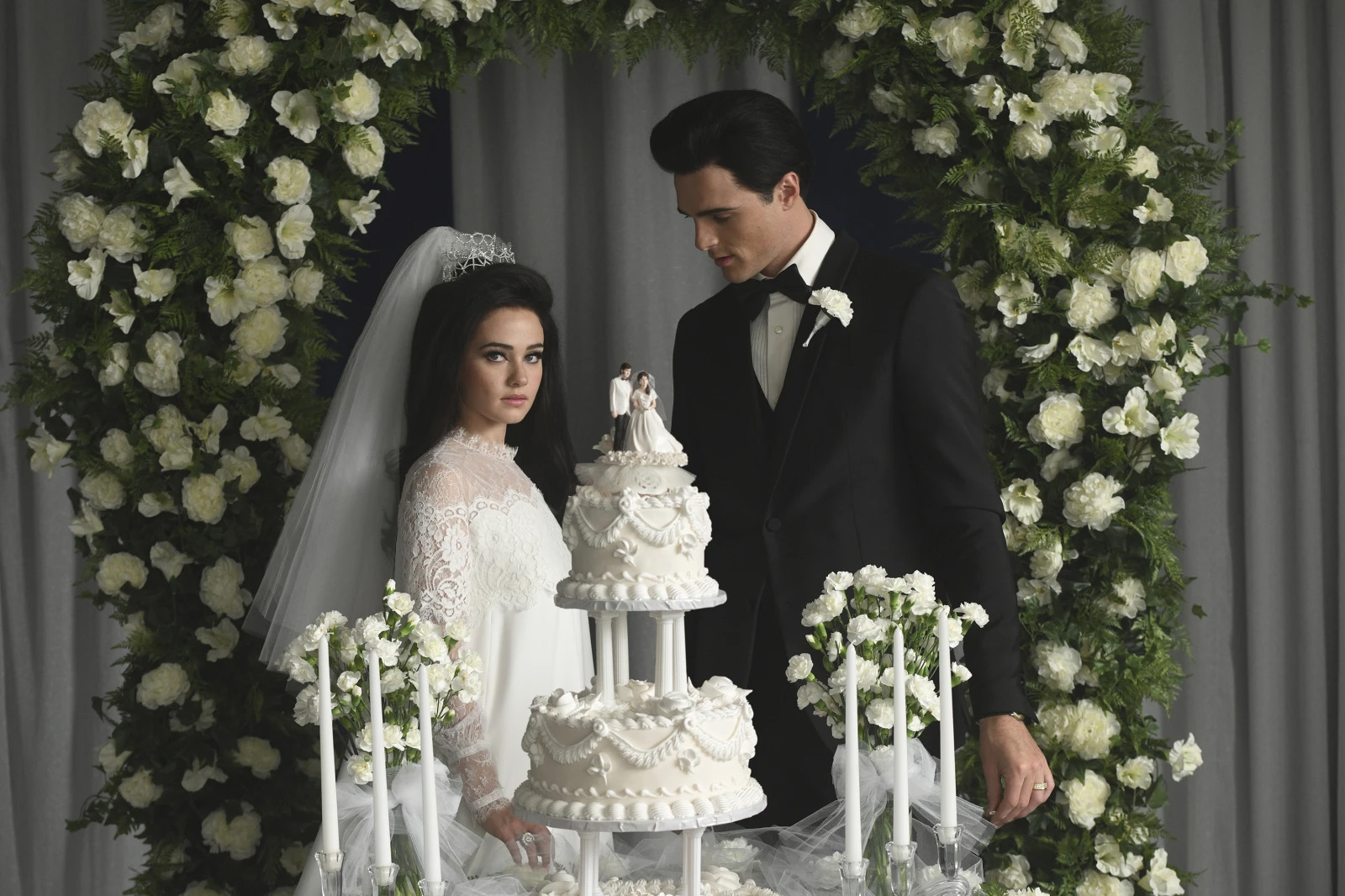
Cailee Spaeny (left) and Jacob Elordi (right) play Priscilla and Elvis Presley in “Priscilla.” Sofia Coppola’s feature film, which released Friday, spotlights the former wife of the late musician. (Courtesy of A24)
“Priscilla”
Directed by Sofia Coppola
A24
Nov. 3
By Maya Rego
Nov. 3, 2023 12:39 p.m.
This post was updated Nov. 5 at 7:36 p.m.
Sofia Coppola is taking viewers back to Graceland – but from an unprecedented angle.
Known for her intimate style and narratives illuminating women isolated at the hands of imposing men, Coppola tackles one of the most iconic – and detested – women in all of pop culture history in her latest feature film, “Priscilla.” A figure whose story is as intoxicating as it is alarming, Priscilla Presley’s life has only ever been depicted on screen as a B-plot to Elvis’ – until now. Complemented by an anachronistic soundtrack, “Priscilla” brings Coppola back to her Americana roots. The film, which released Friday, successfully crafts a moving portrait of the late musician’s former wife and reaffirms Coppola’s place within the canon of the great 21st century auteurs.
[Related: Film review: With slow burn, ‘Killers of the Flower Moon’ meticulously confronts American greed]
Discussing Coppola’s latest production without contrasting it to the controversial “Elvis,” Baz Luhrmann’s biopic released just last year, would be both impossible and a disservice to the film. “Priscilla,” which stars Cailee Spaeny as the titular figure and Jacob Elordi as Elvis, is the antithesis of Luhrmann’s film. While the latter is a gaudy, bloated epic that portrays the “King of Rock and Roll” as a victim to the whims of the music industry, Coppola’s Priscilla-centric adaptation is much quieter. Despite turning down the noise, the film exquisitely renders an unnerving, claustrophobic depiction of the Presleys’ relationship. By the time the credits roll, one has no remorse for Elvis at all and completely understands why the Presley estate publicly opposed the film.
The film opens in 1959 with a 14-year-old Priscilla Beaulieu living with her military family on a base in Germany. She exists as any other teenager would – giving attitude toward her parents, drinking milkshakes at the local diner and dozing off in class. From the moment she arrives on screen, viewers believe that 25-year-old Spaeny is a sassy, angsty high school freshman. Her casting, with a baby face and height of 5 foot 1inch, is largely to thank for the chilling aura behind Elvis’ courtship.
The young school girl is then invited to one of Elvis’ parties by some of his colleagues as the star is fulfilling his obligatory military service at the same base. As early as their first meeting, Elvis’ obsession begins to form. He is shocked to learn her age, claiming her maturity led him to believe she was older. On their second meeting at another one of Elvis’ parties, attended by Priscilla much to the dismay of her wary parents, the two sneak away and have their first kiss – a tender moment, but not enough to stop the growing queasiness audiences feel.
What is most astounding about this scene is not the visual of a 24-year-old rock star kissing a 14-year-old girl, but rather the build up. At the party, Elvis tells Priscilla to go upstairs for a private conversation, assuring that he’ll join her shortly. He’s aware of the awkwardness and fears being judged. Here, Coppola expertly implies the predatory nature of their initial flirtation without explicitly stating it.
The film devolves from this point, with Elvis returning home, and Priscilla following him a few years later. She moves into Graceland, the Presley estate in Memphis, attending high school in the daytime and spending late nights with Elvis and his entourage. During this time, the familiarity of Elvis’ early ‘60s downfall is seen: the drugs, the affairs and the failed movie career. But the film deviates from what history has cemented by showcasing Priscilla’s life.
By the time she arrives in Tennessee, Priscilla is 17 and perpetually alongside Elvis as he crafts the naive teenager into his dream wife. Although she and Elvis do not engage in sex until after they are married four years later, she spends this entire period reconstructing her appearance and her personality around what Elvis wants from her. It is a shocking display of a master manipulator at work. In one of the most quietly harrowing moments in the film, Elvis and company wait outside Priscilla’s high school graduation so as to not draw attention. When she exits, diploma in hand, the group celebrates boisterously, and Elvis wraps his arms around his at-last adult girlfriend. She is 18. He is 28.
Spaeny stands out in the latter two-thirds of the film, portraying a reserved woman overshadowed by a man with a large aura, yet commanding the screen. This is no easy feat while going toe to toe with Elordi, whose 6-foot-5 stature and sinister yet seductive portrayal of the “King” make for a powerful screen presence. Nonetheless, Spaeny is who the audience is drawn to, as her ability to say so much through her eyes alone is enough to make this role a star-making turn.
[Related: Film review: Balancing horror and heart, ‘Five Nights at Freddy’s’ adaptation changes the game]
In the film’s final act, Priscilla gains a taste of liberation. Steadily, a version of the young girl viewers were met with at the start of the film returns. The hairspray and black dye are put back into the cupboards, the clothes are brought out of Southern housewife and into 1970s hippie chic and she crafts a life of her own in Los Angeles. All the while, Elvis’ own career spirals downward during his infamous Las Vegas residency. His tragic downfall is what provides Priscilla her freedom, sharply contrasting the cage Priscilla lived in while Elvis engaged in affairs without consequences. In this way, Coppola masterfully displays the complex nature of their relationship – existing in tandem with the other, but never equal.
This haunting reexamination of the Presleys not only eternally shifts the legacy of Elvis, but also provides a mirror for any woman entrapped by a publicly beloved, privately abusive man.



